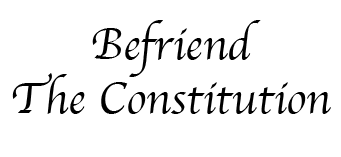In our political system, the government “derives its just powers from the consent of the governed,” to quote the Declaration of Independence. But the “just powers” of government cannot be unlimited, because they exist most fundamentally to secure the God-given rights of life and liberty, so that each of us can exercise our moral agency—the ability “to act for [ourselves] and not to be acted upon”13—and be accountable before God for our choices and actions.
Constitutions, representative government, checks and balances, and the rule of law help constrain the tendency of government to exercise unlimited power. Of course, liberty has limits. Government has a just role in fostering a moral environment in which people can live good and honorable lives. But whatever else government officials may be called upon to do, we the people must never allow them to forget that their offices and powers exist to secure our fundamental freedoms and the conditions for exercising those freedoms.
Thus, despite the obvious need for a proper response to COVID-19, we must not become accustomed to sweeping assertions of governmental power. Invoking emergency powers, government executives summarily imposed numerous orders and directives that in many ways are analogous to martial law. These executive orders are unlike laws enacted through the ordinary give-and-take of the democratic process.

